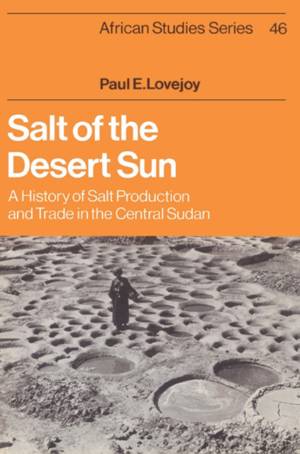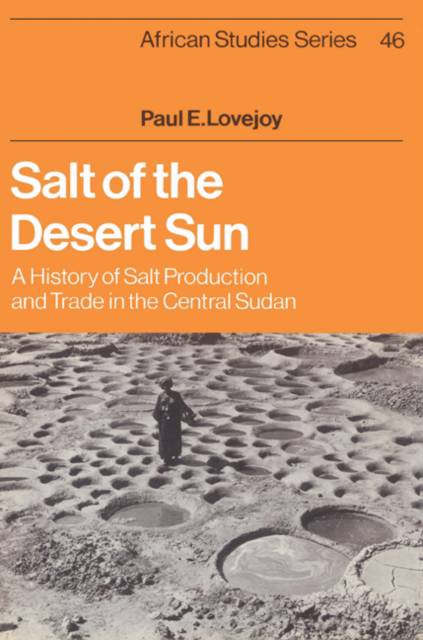
- Afhalen na 1 uur in een winkel met voorraad
- Gratis thuislevering in België vanaf € 30
- Ruim aanbod met 7 miljoen producten
- Afhalen na 1 uur in een winkel met voorraad
- Gratis thuislevering in België vanaf € 30
- Ruim aanbod met 7 miljoen producten
Zoeken
€ 72,45
+ 144 punten
Omschrijving
In this study of salt production and trade, Professor Lovejoy examines the interaction between ecology, technology and social structure as a means of analysing the organisation of the salt industry of the Sokoto Caliphate and Borno. By concentrating on the late nineteenth and early twentieth centuries, Lovejoy is able to establish a base-line from which to interpret earlier changes in the salt trade and thereby assess the impact of politics and economy on the history of the trade. By the end of the nineteenth century, production depended upon a combination of slavery, free migrant peasants, and workers from the haddad artisan caste. A complex marketing network serviced the various salines, although this network was intimately connected with the distribution of other commodities, especially textiles, grain and livestock. An examination of this marketing system reveals patterns of immigration and social advancement that are important in understanding the social history of the central Sudan.
Specificaties
Betrokkenen
- Auteur(s):
- Uitgeverij:
Inhoud
- Aantal bladzijden:
- 368
- Taal:
- Engels
- Reeks:
- Reeksnummer:
- nr. 46
Eigenschappen
- Productcode (EAN):
- 9780521524339
- Verschijningsdatum:
- 13/11/2003
- Uitvoering:
- Paperback
- Formaat:
- Trade paperback (VS)
- Afmetingen:
- 152 mm x 229 mm
- Gewicht:
- 539 g

Alleen bij Standaard Boekhandel
+ 144 punten op je klantenkaart van Standaard Boekhandel
Beoordelingen
We publiceren alleen reviews die voldoen aan de voorwaarden voor reviews. Bekijk onze voorwaarden voor reviews.







